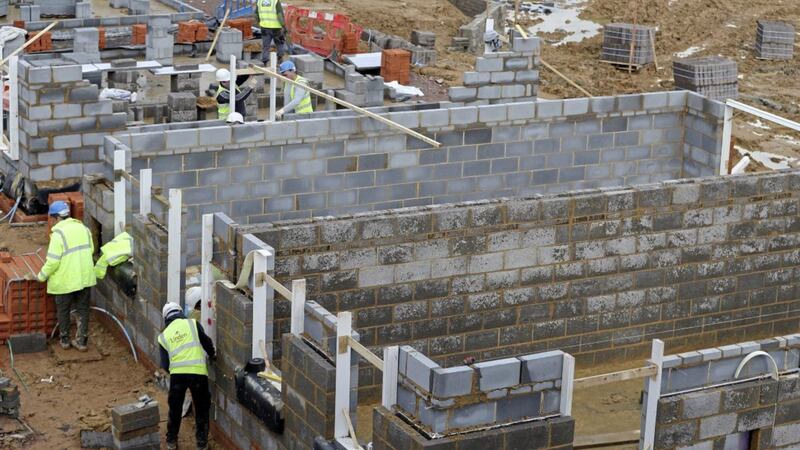THE continued lack of a Stormont Executive is acting as an anchor on growth in the north's construction sector, according to a new industry survey.
Over two years on since the collapse of devolved government, local construction firms in the latest State of Trade Survey have highlighted its absence as the biggest factor in their ability to grow and meet their job-creating potential.
The research, carried out by the Construction Employers Federation and covering the second half of 2018 shows that over half of respondents (56 per cent) have put off growing their workforce directly due to the political impasse, while four in five said the lack of an Executive has led to reduction in the number of projects coming to market.
A lack of finance was also cited by half of respondents as a barrier for growth.
Almost half of those surveyed (45 per cent) said they are shifting their focus for new work outside of Northern Ireland, citing the absent Executive as the key reason. A quarter said they have started Brexit-related preparations.
In a grim outlook for 2019, a third of construction firms (36 per cent) warned that unless a functional devolved government is restored within the next three to six months they will be forced to make redundancies, while three quarters of respondents agree that only through the restoration of the Executive will the local construction industry achieve its growth potential.
The latest survey, which took the opinions of 80 Northern Ireland construction firms with a combined turnover of almost £1bn (£950m) further reveals that just 2 per cent expect the local market to get a 'little better' this year. None of those surveyed foresee it getting a 'lot better', while 70 per cent expect to either stay the same or get worse.
Outside of Northern Ireland the view is slightly more positive, with over a quarter (28 per cent) predicting that the market will improve this year, but crucially 45 per cent see it remaining the same or declining.
In spite of the negativity outlined within the figures, three quarters of construction firms said they worked at either full or almost capacity in the final six months of 2018. However local firms were forced to contend with tighter profit margins and a further rise in labour and material costs over the year.
Construction Employers Federation managing director, John Armstrong said the longer the political impasse continues the more local businesses will suffer.
“Not since the deepest point of the recession a decade ago has our State of Trade survey painted such a stark picture with respect to the concerns of the local construction industry," he said.
“Two years of political intransigence has had the well-publicised effect of holding up public sector works, from values in the hundreds of millions to the tens of thousands, which have, as each month has passed, exacerbated the growth and employment-limiting issues that companies are facing."
"The longer the impasse drags on the more our members and the staff they directly, and indirectly, employ have the sense that our collective political class is oblivious to their concerns. If such a sense is true, and it is increasingly hard to contradict it, that represents a staggering derogation of responsibility at a time when leadership is required more than ever," Mr Armstrong added.








